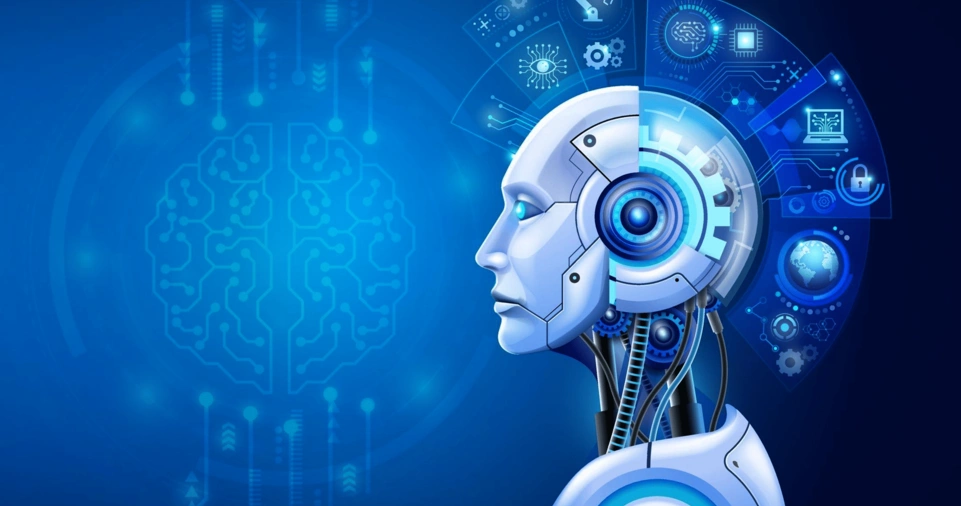Artificial Intelligence (AI) is no longer a distant concept confined to science fiction.
It has become an integral part of our daily lives, influencing everything from the way we shop to how we communicate.
From personal assistants like Siri and Alexa to AI-powered recommendations on Netflix, AI is everywhere. However, as much as we use AI, very few understand how it works or how to create it.
If you’re curious about diving into the world of AI and building your own projects, this guide will provide you with a comprehensive roadmap to get started.
Whether you want to pursue a career in AI or just develop your skills for personal growth, understanding AI’s potential and how to use it is a valuable asset in today’s tech-driven world.
In this beginner’s guide, we’ll cover the fundamental concepts of AI, the skills you need to acquire, the programming languages to focus on, popular tools and frameworks, and much more.
By the end of this guide, you’ll have a clear understanding of how to embark on your AI journey and begin building your own AI applications.
Understanding What AI Is: A Foundation for Learning

What is Artificial Intelligence?
Artificial Intelligence refers to the simulation of human intelligence in machines that are programmed to think and act like humans.
These machines can perform tasks such as recognizing speech, understanding language, making decisions, and solving problems.
At its core, AI can be broken down into several key areas:
- Machine Learning (ML): A subset of AI that focuses on building algorithms and models that allow machines to learn from data without explicit programming.
- Natural Language Processing (NLP): A field that enables computers to understand, interpret, and respond to human language, such as with virtual assistants like Siri and chatbots.
- Computer Vision: This area focuses on teaching machines to interpret and make decisions based on visual inputs, such as analyzing images and videos.
- Robotics: AI-powered robots can perform physical tasks, often autonomously, in fields like manufacturing and healthcare.
Why Learn AI?
AI is reshaping various industries, including healthcare, finance, retail, and transportation. Understanding AI opens up numerous career opportunities.
From data science to machine learning engineering, AI-related jobs are in high demand.
Additionally, learning AI will equip you with the skills needed to create smarter systems and innovate in technology, which is essential as AI continues to evolve.
Learn the Basics of Programming: Your First Step in AI
The Role of Programming in AI
Programming is the backbone of AI development. Without programming, AI wouldn’t be able to function.
To get started, it’s essential to understand the basics of programming and familiarize yourself with popular languages used in AI development.
Recommended Programming Languages for AI
Several programming languages are commonly used for building AI systems.
Here’s a breakdown of the most popular ones:
Python:
Python is one of the most widely used programming languages for AI development.
It is known for its simplicity, ease of use, and vast collection of libraries that simplify complex AI tasks.
Python’s popular libraries for AI include TensorFlow, Keras, PyTorch, and Scikit-learn.
R:
Primarily used for statistical analysis, R is great for machine learning and data analysis tasks.
It’s particularly useful for handling large datasets and performing statistical operations.
JavaScript:
While it’s typically used for web development, JavaScript has frameworks like TensorFlow.js, which allows you to run AI models directly in the browser, making it a great tool for web-based AI applications.
Where to Learn Programming
If you’re new to programming, there are several online platforms that can help you get started:
- Codecademy offers interactive lessons in Python, JavaScript, and other programming languages.
- freeCodeCamp provides free courses in Python and JavaScript, with an emphasis on practical projects.
- SoloLearn is a mobile-friendly platform that provides beginner-level courses in a variety of programming languages.
Don’t worry if you don’t have any prior coding experience. Start with the basics, and practice consistently to build your skills over time.
Math is Crucial: Understanding the Mathematical Foundations

Why Math Matters in AI
AI involves several mathematical concepts that are crucial to understanding how algorithms and models work.
You don’t need to be a math expert, but having a solid grasp of the following areas will make it easier to understand AI principles:
Linear Algebra:
The branch of mathematics that deals with vectors, matrices, and systems of linear equations.
Linear algebra is foundational to many AI algorithms, particularly in machine learning, as it’s used to represent data and perform transformations.
Calculus:
Calculus is used in optimization tasks, such as finding the best parameters for machine learning models.
It helps in understanding gradients and derivatives, which are essential when training AI models.
Probability and Statistics:
These are used to model uncertainty and make predictions. Statistical methods are used to interpret data and develop models that can make decisions based on that data.
Where to Learn Math for AI
If you’re not comfortable with math, there are online courses and resources that break down these concepts into digestible chunks:
- Khan Academy offers free lessons in linear algebra, calculus, and statistics.
- 3Blue1Brown on YouTube provides beautifully animated videos explaining the concepts behind linear algebra, calculus, and more.
Focusing on these topics will ensure you have the necessary mathematical background to progress in AI.
Explore AI Tools and Frameworks: Leveraging Existing Resources
Top AI Tools for Beginners
Once you have a basic understanding of programming and math, the next step is to explore AI tools and frameworks that simplify the process of building AI models.
Here are some of the most popular tools you’ll need:
TensorFlow and PyTorch:
These open-source deep learning frameworks are essential for building and training neural networks.
TensorFlow is developed by Google, and PyTorch is developed by Facebook. Both have extensive documentation and tutorials for beginners.
Scikit-learn:
A Python library that provides simple tools for data analysis and machine learning.
It is perfect for beginners and includes algorithms for classification, regression, clustering, and dimensionality reduction.
Keras:
Keras is an easy-to-use neural network library written in Python. It is highly modular, making it easy to experiment with different machine learning models.
OpenAI GPT Models:
GPT (Generative Pretrained Transformer) models are used for natural language processing tasks like text generation, translation, and summarization.
How to Get Started with AI Tools
Each of these tools has beginner-friendly resources and tutorials to help you get started. Check out their official websites and online forums to find beginner tutorials and project ideas.
Once you feel comfortable with the basic concepts, try building simple projects using these tools to gain hands-on experience.
Start Small: Building Your First AI Projects

Choosing Your First AI Projects
The best way to learn AI is by doing. While reading and theory are important, building projects will solidify your understanding and give you practical experience.
Start small with beginner-friendly projects and gradually increase their complexity as you gain confidence.
Here are some simple AI projects you can start with:
- Spam Filter: Use machine learning to build a spam filter for emails by training a classifier to distinguish between spam and non-spam messages.
- Recommendation System: Create a simple movie or product recommendation system using collaborative filtering or content-based methods.
- Chatbot: Use natural language processing techniques to build a basic chatbot. There are libraries like NLTK (Natural Language Toolkit) in Python that can help you get started.
Where to Find Project Ideas
- Kaggle: Kaggle is a platform for data science competitions, but it also has a vast collection of datasets and beginner-friendly project ideas that can help you practice your skills.
- GitHub: GitHub hosts open-source AI projects. You can explore other people’s code and contribute to projects or start your own.
AI Ethics: Understanding the Impact of AI on Society
Why Ethics Matters in AI
As AI continues to develop and impact various sectors, ethical considerations have become increasingly important.
Understanding AI ethics is crucial for building responsible systems that don’t harm individuals or society.
Some key ethical issues in AI include:
- Bias in AI: Algorithms can inadvertently inherit biases from the data they are trained on. It’s important to ensure that AI systems are fair and do not discriminate against specific groups of people.
- Privacy Concerns: AI systems often rely on large amounts of personal data. Ensuring that AI applications are designed with privacy in mind is crucial for user trust.
- Transparency and Accountability: As AI makes more decisions, it’s essential to ensure that these decisions are explainable and transparent.
How to Study AI Ethics
Many online courses and articles are dedicated to AI ethics.
For example, the course “AI For Everyone” by Andrew Ng on Coursera provides an excellent introduction to AI, including discussions on ethical issues.
Join AI Communities: Learning from Others
Why Join AI Communities?
AI is a fast-evolving field, and staying up-to-date with the latest trends and technologies is essential.
Joining AI communities will allow you to network with like-minded individuals, get help with challenges, and learn from others’ experiences.
Where to Find AI Communities
- Reddit’s r/MachineLearning: A popular subreddit where AI professionals and enthusiasts share articles, tutorials, and discuss the latest advancements.
- Kaggle Discussions: Kaggle also has a community where you can discuss data science and AI projects with fellow learners and experts.
- LinkedIn Groups: There are many LinkedIn groups dedicated to AI, where professionals share job opportunities, news, and resources.
Stay Updated: Keep Learning and Evolving
How to Stay Updated in AI
AI is a rapidly advancing field, and to stay relevant, it’s essential to keep learning. Follow AI blogs, research papers, and industry news to stay informed about the latest advancements.
Some recommended resources include:
- AI Newsletters: Subscriptions like “The Batch” from DeepLearning.AI will keep you updated with the latest AI trends.
- Google AI Blog: Follow Google’s AI Blog for updates on research, new tools, and applications in AI.
ALSO READ: Top AI Tools for 2025: Enhancing Innovation and Productivity
Conclusion
AI offers incredible potential, and with the right tools and resources, anyone can get started.
Whether you’re looking to change careers, add AI skills to your repertoire, or simply explore a fascinating field, AI offers endless opportunities.
By understanding the fundamentals, learning programming, and staying engaged with the community, you’ll be well on your way to mastering AI.
Take the first step today and start your AI journey!


